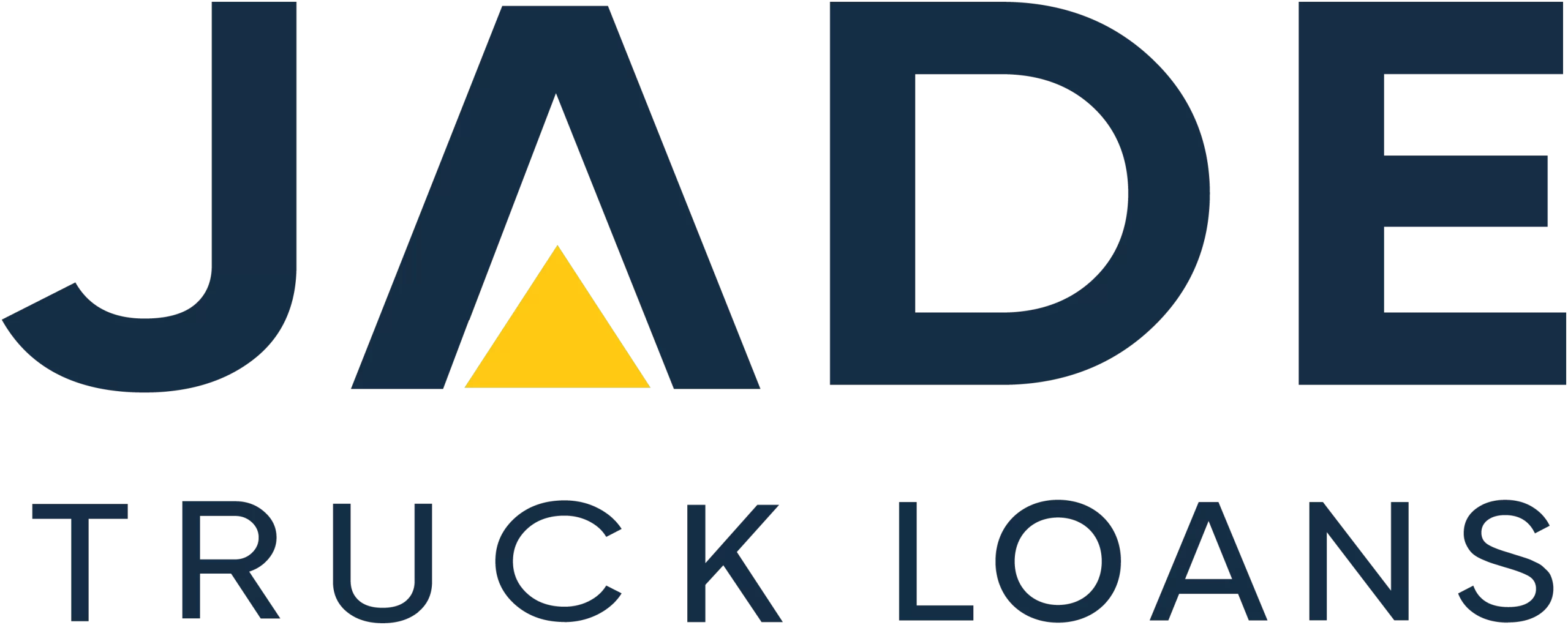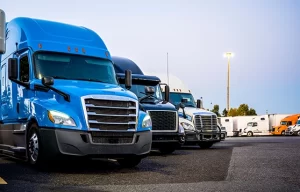The 2020/21 Federal Budget contained numerous measures aimed at incentivising business to invest in assets and stimulate the economy. Of particular relevance to our Jade Trucks Loans customers being the Instant Asset Write-Off and temporary full expensing as they represent potential for realise an accelerated tax benefit through the investment in new trucks. While these initiatives been widely understood and promoted, another measure may have slipped under your radar - Loss Carry Back.
Loss Carry Back is an accounting measure and while we’re sure you leave a lot of this type of thing to your accountant, gaining a rudimentary understanding can be beneficial, especially when considering Truck Finance Options. So, let's delve into this.
Loss Carry Back: The Basics
When your business makes a loss, under standard ATO regulations, you can carry that loss forward. That means if you make a profit in the following financial year, you can deduct the loss (or the amount of the loss under ATO rulings) from the previous year and this reduces your taxable income and thus the tax you owe. It means you have to wait a full year to realise and tax benefit from the loss.
Loss carry back means claiming losses made against profit made in earlier years. Instead of carrying the loss forward and claiming and tax deduction against future profits, a benefit may be claimed against earlier profits. Subject to the ATO rulings at the time. So you realise a tax benefit in the current year, the year of loss, instead of waiting for future years of profit.
The current measure as laid out in the Budget, has eligibility criteria of course. It is for businesses with turnover under $5b and subject to the business having paid income tax in 18/19, 19/20 and 20/21 can carry back the losses made in 19/20, 20/21, and 21/22 financial years.
The thinking behind the measure is that businesses that made profits in previous years may make losses in 19/20, 20/21 and 21/22 due to the economic impacts of COVID-19. Instead of waiting for profit in the future some time to claim the tax offsets of losses, they can be claimed against profits in the years as indicated by the ruling.
This may result in a short-term tax refund rather than waiting for a benefit in a longer term. There are of course limits on the liabilities and some losses are ineligible. Your accountant is sure to be across the detail to advise you.
Another point which has been noted by the Government, is in conjunction with IAWO and the temporary full expensing measures. If, for example, subject to all eligibility criteria, you purchase a truck and claim the asset write off it may result in your business posting a loss for the financial year. This loss can then be claimed against profits in the relevant years, resulting in a tax refund in the year the truck was purchased.
How might this help you?
The "Loss Carry Back" provision could culminate in a tax refund, translating to real money flowing back into your bank account, rather than just numerical entries on your annual financial accounts. Essentially, this means a tangible cash refund in the year you experienced the loss, instead of waiting for potential profits in the upcoming years.
Given that you meet all the requirements, your business might be eligible for a cash refund by the end of the current financial year, 30 June 2021. Delving into Finance Options for New Business, a truck purchase in the present could offer dual benefits. Not only could your business leverage the asset write-off measure, but this investment might also lead to a financial loss, which in turn could result in an income tax refund. The alternative, of course, would be a potential tax bill.
Such liquidity can be pivotal in reinforcing your business operations or even making subsequent investments in new trucks. For those eyeing further investment, considering Commercial Heavy Vehicle & Truck Loans can be beneficial. While it's imperative to verify all steps against the ATO's eligibility criteria, our aim is to elucidate the concept of "Loss Carry Back" in a manner that's easy to grasp.
Impacts for Truck Loans
Now we get down to how, as a lender, Jade Truck Loans is particularly interested in this measure and how we can assist you realise any benefits. If you do realise a tax refund that can be a boost to your cash flow and place your business in a better position to consider a truck purchase.
If you choose to utilise the asset depreciation initiatives, we can assist with cheap finance that is suited to asset depreciation. Jade Truck Loans offers the full selection of truck finance options including lease, truck rental loan, CHP and Chattel Mortgage for commercial vehicle loan.
When you choose Leasing or Rent to Own options, the repayments are considered operational expenses, making them eligible for tax deductions. However, if you purchase a truck during the specified "loss carry back" years, these repayments could result in a financial loss for your business. This loss can then be offset against profits earned in those specific years. It is important to note that these financing methods, being off-balance-sheet arrangements, do not qualify for asset depreciation under the Instant Asset Write-Off (IAWO) and full expensing.
For those seeking to claim asset depreciation through IAWO, a Chattel Mortgage proves to be a more suitable financing choice. To gain a deeper understanding, we have extensively discussed this topic in several articles available in our library.
In essence, taking the time to grasp some basic accounting concepts can potentially yield valuable returns for your business.
To discuss your options for a truck loan contact Jade Truck Loans on 1300 000 003
DISCLAIMER: THE INFORMATION, OPINIONS, DATA, POLICIES, PRODUCT SPECIFICATIONS AND OTHER CONTENT CONTAINED AND EXPRESSED IN THIS ARTICLE HAS BEEN OBTAINED THROUGH RECOGNISED REPUTABLE SOURCES, PRIMARILY IN THE PUBLIC DOMAIN. LIABILITY IS NOT ACCEPTED FOR ANY ERRORS OR MISINTERPRETATION OF SAID CONTENT. THIS CONTENT IS NOT INTENDED OR PROVIDED AS THE SOLE SOURCE OF INFORMATION OR AS SPECIFIC FINANCIAL ADVICE IN REGARD TO MAKING DECISIONS BY INDIVIDUALS OR BUSINESSES. THOSE THAT CONSIDER THAT THEY NEED PROFESSIONAL ADVICE SHOULD REFER TO A FINANCIAL ADVISOR.


 " alt="">
" alt="">